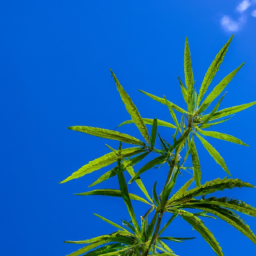Summary. There's little research on whether weed can help with ADHD. The research that exists is mixed: Some studies have found that cannabis may alleviate certain ADHD symptoms, while others suggest it might worsen them. However, there might be another reason; according to one study, consuming high doses of cannabis reduces the need for ADHD medication. This raises questions about the potential therapeutic effects of marijuana on ADHD.
Marijuana and ADHD are a controversial pair. Self-medication with cannabis received mixed reviews from ADDitude readers who cite both the benefits and downsides. While some individuals claim that marijuana helps them focus and calm their minds, others report experiencing increased anxiety and difficulty concentrating. It is important to consider these subjective experiences alongside scientific research.
A recent observational study conducted by a team of UK-based researchers found that medical cannabis may be beneficial for people with ADHD. The study revealed that ADHD patients who used medical cannabis experienced sustained improvements in their symptoms, including reduced impulsivity and better sleep quality. However, the study had limitations, such as a small sample size, and further research is needed to confirm these findings.
London, United Kingdom: Patients with attention-deficit/hyperactivity disorder (ADHD) exhibit sustained improvements in their symptoms after using medical cannabis, according to a study conducted at a UK-based clinic. The study involved a group of ADHD patients who were given medical cannabis as an adjunct therapy. The results showed significant reductions in hyperactivity, impulsivity, and improved overall quality of life.
The federal prohibition on all cannabis products, including hemp, prior to 2018 has limited research on CBD and ADHD. CBD, a non-intoxicating compound found in cannabis, has gained popularity as a potential treatment for various conditions, including ADHD. Many areas of the brain impacted by ADHD are affected by compounds found in cannabis, suggesting a potential therapeutic role for CBD. However, more research is needed to understand its efficacy and safety profile.
Key points:
-
Many areas of the brain impacted by ADHD are affected by compounds found in cannabis.
-
Stimulants are frequently prescribed to manage ADHD symptoms, but some individuals may seek alternative treatments such as medical cannabis due to side effects or limited efficacy.
-
The chief executive of charity ADHD UK said people sometimes have to wait up to five years for an appointment, yet some symptoms are eased through the use of cannabis. This highlights the need for accessible and effective treatments for individuals with ADHD.
-
Cannabis Use During Pregnancy May Increase Risk of Autism, ADHD. Published on ... In a study using pregnant monkeys, researchers found that Cannabis use during pregnancy was associated with an increased Risk of autism and ADHD in offspring. This raises concerns about the potential adverse effects of cannabis use on neurodevelopment.
